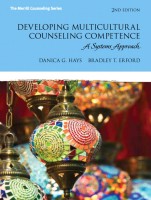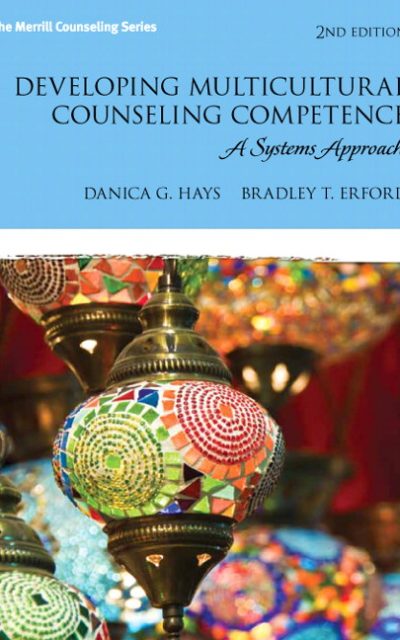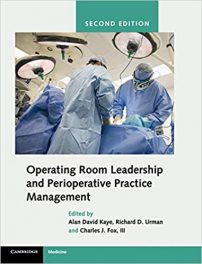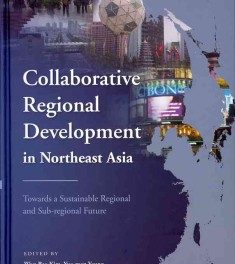 Editors: Danica G. Hays, PhD, and Bradley T. Erford, PhD
Editors: Danica G. Hays, PhD, and Bradley T. Erford, PhD
Publisher: Pearson – 607 pages
Book Review by: Sonu Chandiram
With 43 contributing authors of various cultural, ethnic, geographic and racial backgrounds, this book is a sort of unique tool on the process of developing competence in counseling a diverse range of people. Its coverage of topics is also extensive, mainly because culture is such a broad concept that encompasses many aspects human beings, as the editors write in their Preface.
Culture not only means many things to many people; to some it means a few things, while to others, it means a lot of different things. Culture can be defined in terms of this group of related terms: common history, ethnicity, geographic origin, kinship, language, nationality, race, religion, and traditions.
To some, when they think of culture, these things come to mind: ability, education, income, profession, skill set, and socioeconomic level. And still to others, culture brings up ideas of gender and sexual orientation.
How is multicultural counseling competence developed? In a word, not easily. It is a never-ending, lifelong process of learning and acquiring greater and greater “cultural understanding,” write Danica Hays and Bradley Erford. They explain that many concepts are related to the objectives of acquiring and developing multicultural understanding, an important step in the process of becoming competent in counseling people of different cultures.
Some of these concepts are: self awareness, sensitivity to diversity, knowledge of cultural values and social advocacy. Also, \a range of emotions towards people of different ethnicity and other factors arise in our being, based on our past experiences, both pleasant and negative: anger, grief, guilt, sadness and shame, to name a few. These facilitate or obstruct us in our effort of developing our ability to deal with them on a business and personal level.
We must first seek to understand ourselves before we can understand others, the authors explain. They write: “Only after we engage in self-exploration, experience the consequences, and begin to change because of these consequences can we be free to understand and counsel others.”
Discriminatory and negative attitudes towards those who are not like us can change after such self-exploration. Then we can take a step further with social advocacy: to try get rights for those discriminated against in society.
“Social starts when we can connect our personal growth and initiative to change the status quo for those unjustly affected within various social systems by forms of oppression such as structural racism, sexism, heterosexism, classism, ableism, and ageism,” the editors explain.
This book of 19 chapters is organized into four sections. The first section, Foundations of Multicultural Counseling, enumerates and discusses in chapter one the various requirements of becoming a culturally competent counselor; and in chapter two, shows how cultural identity is developed.
The second section, Social Advocacy, covers the various types of discrimination. A larger section one with chapters three through eight, it deals with social justice counseling; racism and white privilege; gender and sexism; sexual orientation and heterosexism; social class and classism; and disability, ableism, and ageism.
The third section, Counseling Multicultural Populations, contains chapters 9 through 16 which discuss how to counsel families and individuals of different ethnic descent, with each chapter devoted to a different ethnic population, namely: African, Arab, Asian, Latin, native American, European, and multi-racial; and spiritual diverse.
The fourth and last section, Multicultural Conceptualization, with chapters 17, 18 and 19, takes a look at alternative approaches to counseling theories; multicultural diagnosis and conceptualization; and themes and future directions in multicultural counseling theory, ethics, practice, and research.
This book has been planned and organized well by the editors named below, who took the contributions of 44 experts in various areas of multicultural counseling competence and placed them in four sections named above. It is a job done extremely well.
It is interesting to know that this book contains the list of AMCD Multicultural Counseling Competencies, which contains the Attitudes and Beliefs, Knowledge, and Skills in each of three competencies: Counselor Awareness of Cultural Values and Biases; Counselor Awareness of Client’s World View; and Culturally Appropriate Intervention Strategies.
Editors:
Danica G. Hays, PhD, LPC, NCC is an associate professor of Counseling and Chairperson of the Department of Counseling and Human Services at Old Dominion University. She is a recipient of the Outstanding Research Award, Outstanding Counselor Advocacy Award, and Glen E. Hubele National Graduate Student Award from the American Counseling Association as well as the Patricia B. Elmore Excellence in Measurement and Evaluation Award and President’s Special Merit Award from the Association of Assessment and Research in Counseling (AARC). Dr. Hays has been a faculty member at Old Dominion University since 2006. Her primary teaching responsibilities are doctoral-level research methods courses, assessment, and clinical supervision.
Bradley T. Erford, PhD is a professor in the school counseling program in the Education Specialties Department at Loyola University Maryland. He was president of the American Counseling Association during 2012-2013. He is an American Counseling Association (ACA) Fellow and recipient of several ACA awards, including the Research Award, Extended Research Award, Hitchcock Distinguished Professional Service Award, Professional Development Award, and the Carl Perkins Government Relations Award, and other awards. He teaches courses primarily in the areas of assessment, human development, research and evaluation, school counseling, and stress management.
Contributing Authors:
Alvin N. Alvarez, PhD
Debra E. Berens, PhD
Patrice S. Bounds, doctoral candidate
Edward Cannon, PhD
Craig S. Cashwell, PhD
Michael P. Chaney, PhD
Catherine Y. Chang, PhD
Andrea Dixon, PhD
Karen E. Eriksen, PhD
Stephanie J.W. Ford, LPC
J.T. Garrett, EdD
Michael Tlanusta Garrett, Med
Amanda L. Giordano, PhD
Philip B. Gnilka, PhD
Laura McLAughlin Gonzalez, PhD
Lisa Grayshield, PhD
Marc A. Grimmett, PhD
Malik S. Henfield, PhD
Arpana G. Inman, PhD
Barbara Kawulich, PhD
Kelley Kenney, EdD
Victoria E. Kress, PhD
John Marszalek, PhD
Amy L. McLeod, PhD
H. George McMahon, PhD
Tammi F. Milliken, PhD
Rasha H. Mohamed, Med
Cheryl Moore-Thomas, PhD
Sylvia C. Nassar-McMillan, PhD
Kathryn S, Newton, PhD
Tami Ogletree, PhD
Caroline O’Hara, EdS
Jonathan j. Orr, PhD
Pamela O. Paisley, EdD
Mark Parrish, PhD
Tarrell Awe Agahe Portman, PhD
Jennifer E. Randall, MA
Edil Torres Rivera, PhD
Analise A. Singh, PhD
Bogusia Skudrzyk, PhD
Jose A. Villalba, PhD
Ahmad R. Washington, NCC
Cyrus Williams, PhD







